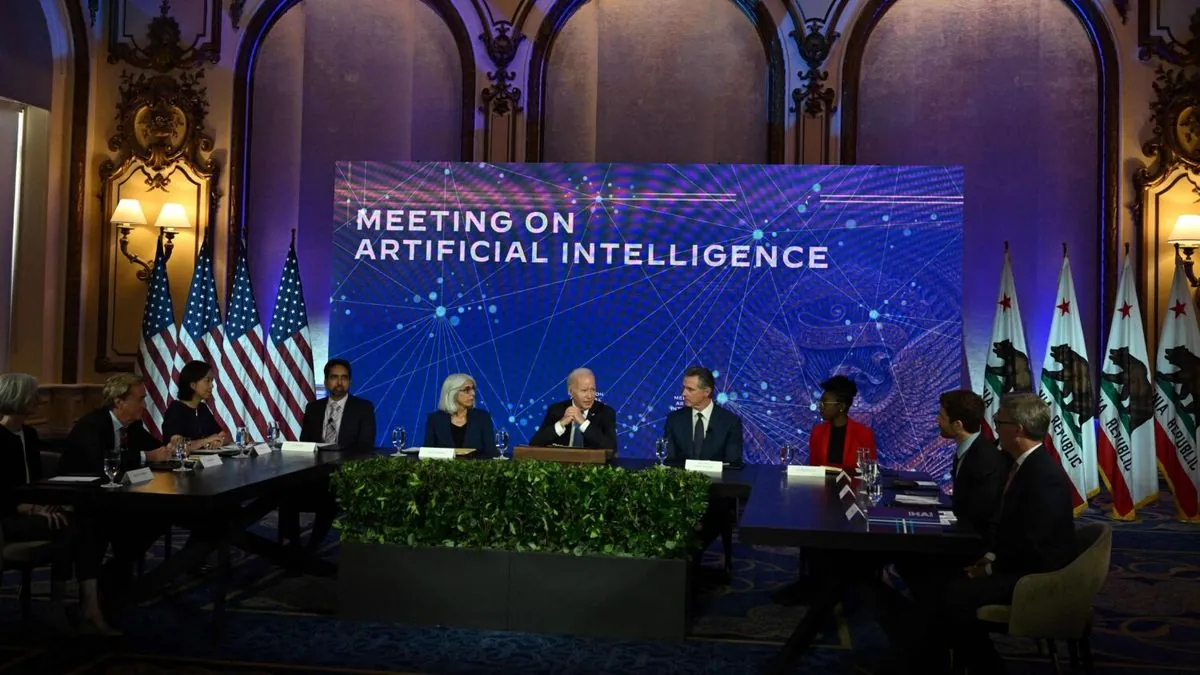White House Hosts AI Summit: Focus on US Infrastructure and Collaboration
Biden administration officials met with AI industry leaders to discuss US data center development and infrastructure needs. The talks emphasized public-private partnerships and addressing the sector's workforce requirements.

On September 12, 2024, senior officials from the Biden administration convened with executives from prominent AI companies to discuss the future of artificial intelligence in the United States. The meeting, which took place at the White House, focused on enhancing domestic infrastructure for AI development and fostering collaboration between the public and private sectors.
Karine Jean-Pierre, the White House press secretary, informed reporters that the discussions centered on strengthening public-private partnerships and addressing the industry's workforce and regulatory requirements. The meeting highlighted the critical role of reliable electricity access in powering AI infrastructure, with utility company representatives present to address power grid concerns.
The summit brought together key players in the AI field, including representatives from OpenAI, Google, Nvidia, and Microsoft. These companies, along with others in attendance, are at the forefront of AI research and development. For instance, OpenAI, founded in December 2015, has made significant strides in natural language processing, while Nvidia, established in 1993, provides essential hardware for AI computations.
The discussions touched on the potential impacts of AI on the economy and national security. While AI promises to boost productivity, it also raises concerns about job displacement. The technology's dual nature as both a tool and a potential threat to security was also acknowledged.
"We must ensure that artificial intelligence systems are safe, secure, and trustworthy – and that they respect the rights and values of the American people."
This meeting follows President Joe Biden's executive order on AI development, signed in October 2023. The order aimed to establish safeguards through measures such as AI content watermarking and addressing consumer rights issues. It's worth noting that the US National Artificial Intelligence Initiative Act became law in January 2021, demonstrating the government's ongoing commitment to AI regulation and development.
The global AI market, valued at $136.55 billion in 2022, has the potential to contribute up to $15.7 trillion to the global economy by 2030. This economic potential underscores the importance of the US maintaining a competitive edge in AI development and infrastructure.
Key administration attendees included Jeff Zients, White House chief of staff, Lael Brainard, National Economic Council Director, Jake Sullivan, national security adviser, Bruce Reed, deputy chief of staff, Gina Raimondo, Commerce Secretary, and Jennifer Granholm, Energy Secretary. Their presence highlights the multifaceted approach the administration is taking towards AI development, considering economic, security, and energy implications.
As the US electric grid, comprising about 7,300 power plants and 160,000 miles of high-voltage power lines, faces the challenge of meeting the growing energy demands of AI infrastructure, the involvement of utility companies in these discussions becomes crucial. The meeting marks a significant step in addressing the complex interplay between technological advancement, infrastructure development, and regulatory frameworks in the rapidly evolving field of artificial intelligence.


































